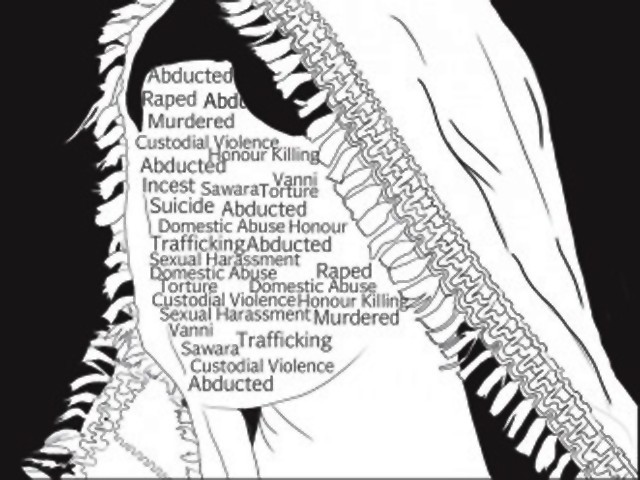By Melanie Sauer
The sheer violence and brutality that children are exposed to in the Western Cape on a daily basis is severe. That’s according to one expert, working in the field of gender research commenting on a spate of horrific murders of young girls in Cape Town. Fear and outrage has spread amongst residents in the Western Cape, following the discovery of a woman’s body buried in a shallow grave in Lotus River on Sunday – the third victim to gender-based violence in the last three weeks.
“We are a very violent society, so it becomes the norm. (It) is how you deal with conflict and anger. Combine that with gender equality and sexual entitlement (and) you get the concoction for a murderer or rapist,” says Naeemah Abrahams, from the Gender and Health Division of the South African Medical Research Council (SAMRC).
Currently, there are no official statistics on whether there has been an increase in gender-based violence in the Cape.
“When we did our study nationally in 2009, we found that three children were killed per day in South Africa. So it’s always been a problem for us,” says Abrahams.
The recent cases in the Western Cape were simply more prominent as the suspects identified were known members of the community.
“Very often we have women…and children (who) are killed, and there are no suspects.”
Cape Town becoming increasingly violent
A report released by the Igarapé Institute this week, reveals Cape Town as the most violent city in South Africa, and the 14th most violent city in the world.* So regardless of whether these cases show an increase in violence against women, the study serves as a warning of the crucial action needed to reduce violent crime in the Western Cape.
Abrahams has urged for an overhaul of current prevention strategies is needed.
“We tell children ‘beware of strangers’, and it’s not strangers that are killing them, it’s somebody they know. It is well documented that children who are killed and raped, or are sexually abused, is perpetrated by someone they may know.”
Randy Tango, the man charged with the killing of 11-year-old, Stacha Arendse from Tafelsig, for example, was known to the family. Arendse’s half-naked body was found on a soccer field last week.
Gender norms
“We found across the world that gender and gender equality norms, are the basis for all perpetration of violence. Men violate (women) because they can. They’ve seen it being done, they get away with it, and they believe they are entitled to use rape and sex against women.”
Abrahams therefore suggests shifting the focus to men, specifically, socialising boys “to become men that do not abuse, but that respect women.”
When it comes to the brutality of the murders witnessed in the Western Cape, the perception is that the suspect is psychologically unstable.
According to Abrahams, this is commonly misattributed to a “hatred of women”. Research conducted by the council however, shows that brutality often stems from the perpetrator’s realisation that they may be caught.
“The motive might have been to rape, and killing happened because the rapist realised that he will be identified and caught.”
In the minority of cases, where brutality was fuelled by aggression, the council found it was linked to “gender power”, where the underlying motive is for the perpetrator to demonstrate power over the victim.
The psychosis of criminals
“Psychologically, we do know that men who rape have had quite severe childhoods. They themselves have been exposed to violence (including sexual violence).”
Abrahams admits that gender norms will not change overnight, and in the meantime parents should equip children with appropriate self-defence skills and promote safe behaviour, such as walking in areas that are well-lit and populated.
When it comes to parenting, Abrahams acknowledges it is no easy task.
“We aren’t really taught. We do how we were raised. Parents do however need to be mindful of the impact their behaviour will have on their children.”
The response of the community towards the tragedies of the recent weeks provides hope. The anger and protest outside the courts this week shows Capetonians are serious about change. There is now a move towards getting community members more actively involved in monitoring the safety of their children in their respective areas.
Lavender Hill residents protested outside the Wynberg High Court on Tuesday, as suspected killer of Rene-Tracy Roman (13), Andrew Plaatjies (50), applied for bail. A day earlier angry Tafelsig residents protested outside the Mitchells Plain Magistrate’s Court, vowing to “deal” with Randy Tango, 31, who allegedly killed Stasha Arendse.
Plaatjies’s trial was postponed to 25 April and Tango’s to 3 May.
*The study defines Cape Town as the entire Cape Town metropolitan area.






 WhatsApp us
WhatsApp us 

